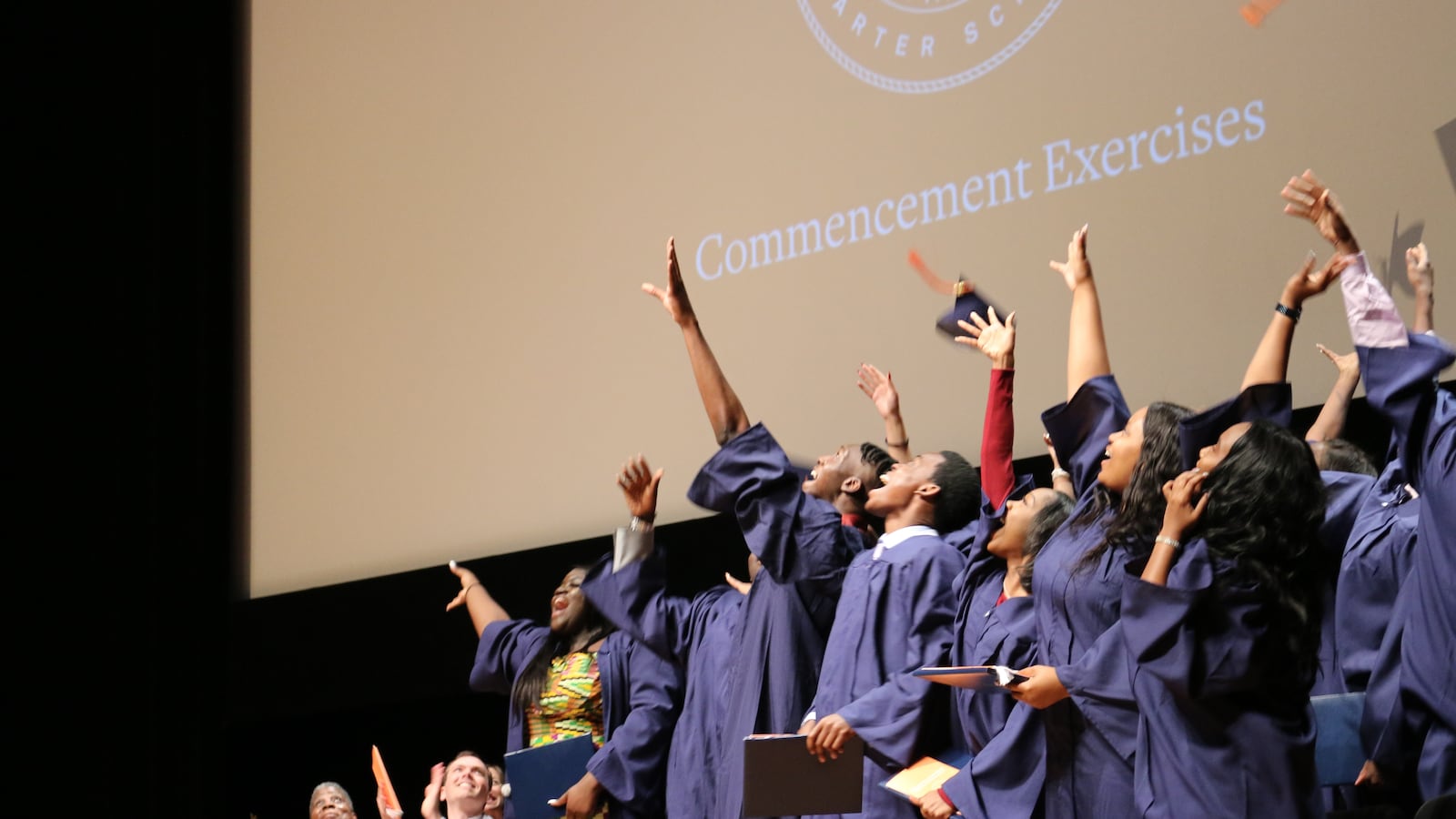Success Academy was an experiment that began 12 years ago, developed into New York City’s largest charter school network, and on Thursday, it graduated its first high school class.
To mark the occasion hundreds of proud parents and family members, educators, and fellow Success Academy students gathered at Alice Tully Hall at Lincoln Center to watch just 16 high school seniors collect their diplomas. All of the graduates are college-bound.
In the coming years, the controversial charter network’s critics and supporters alike will be watching the inaugural class to see whether Success’s famously demanding approach has prepared its students to thrive in college and beyond.
The tiny graduating class also raises questions about how the network will implement its expansion plans, while losing so many students along the way: Success Academy does not admit students after fourth grade, saying those who have attended other elementary schools wouldn’t be ready for the school’s rigorous approach.
The commencement, though, was all about celebrating the very students who helped launch Success in Harlem, back in 2006. Eva Moskowitz, the network’s polarizing founder, cried Thursday while recalling that first day, admitting, “I frankly did not know what I was doing.”
“But I had a vision for an excellent school,” she said. “We have done this all together.”
Amid commencement exercises, Moskowitz took to Twitter to thank Success parents for “entrusting us with your children,” and post a photo of one of the graduates in his cap and gown.
The graduates will fan across the country this fall, attending schools such as Massachusetts Institute of Technology, Emory University, Boston College, SUNY Cortland, and the University of Southern California.
While Success has more than proved it can push some of the city’s most vulnerable students to excel on state tests, how those same students will perform in college remains an unanswered question. And as the charter movement matures, more educators measure success not merely by test scores or high school graduation statistics, but by how many of their graduates complete college and land jobs.
The national charter network KIPP has been among the leaders when it comes to supporting students through their college careers, with regular check-ins and advising.That network has run a high school here since 2009. This year, 94 percent of the school’s graduating class are college-bound.
KIPP says 38 percent of their graduates complete a college degree. That is just a few percentage points above the national average. But it is far more impressive when you consider that KIPP targets the students from the poorest households, only 10 percent of whom earn degrees nationally.
Belinda Nealy, whose daughter Briannie Bratcher graduated Thursday, recalled many evenings at the library, helping with challenging school assignments, and how once, when Bratcher was in first grade, she asked to be taken to the emergency room because “she was exhausted.” But Bratcher loved the school, and Nealy said it has prepared her daughter well for what’s next: She’s headed to Bard College to study psychology.
“Most of the people who pulled out said it was too hard, but I thought my daughter was worth it,” Nealy said. “I would do it all over again.”
Success Academy serves more than 15,000 students in 46 New York City schools. Moskowitz has said she wants to grow to 10 high schools, part of a push to serve 50,000 students during the next decade. The network currently runs one high school: Success Academy High School of the Liberal Arts in midtown Manhattan. (A ninth grade class of a separate Success high school was located in the same building. The schools will merge in the fall.)
This graduating class started off with 73 students when the network launched, according to the Wall Street Journal. Critics have said that Success pushes out students who are the toughest to serve, such as those with behavioral challenges — something the network adamantly denies.
For those parents who did stay at Success through high school, it is hard to overstate their admiration for what the schools have done for their children.
Keisha Rush tried another high school for her son, Elyjah Pellew, but he only lasted two weeks there. She worried about his safety and wondered why he never had homework. Rush sent him back to Success, where he had gone to school since the first grade. There, her son felt challenged and Rush trusted in Moskowitz’s leadership.
“From the start, Eva stood up for what she was going to do,” Rush said. “There was no need to leave.”
Correction: This story erroneously reported KIPP’s New York City high school seniors have already graduated this year. Their graduation is June 22. Also, this story has been updated to reflect that Success Academy ran a separate high school in the same building as its Manhattan school.


